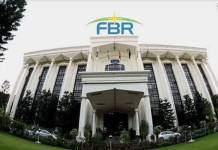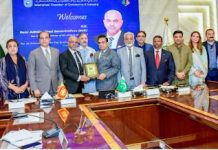KARACHI, APR 15 /DNA/ – Atif Ikram Sheikh, President FPCCI, has called for immediate policy interventions and resolution of anomalies pertaining to tea imports. He has explained that tea should be considered a necessity & a basic food item for everyone – and, not a luxury; as is the case as per current practice at the import stage.
Mr. Atif Ikram Sheikh maintained that tea traders are suffering due to various anomalies & weaknesses in policies and regulations. Tea is wrongfully taken as a finished product at the import stage; but, as a matter of fact, it is a raw material – which is then processed, blended, packaged and marketed. Charging approximately 70 percent in total duties and taxes on tea’s import value makes no sense. This is prohibitive and exorbitant for SMEs, he added.
FPCCI Chief added that, given the socioeconomic structure & labor-class dynamics, most of the tea is consumed in Pakistan with plain staple foods like roti or paratha by construction workers, factory labor, daily wagers and other lowest of the lowest strata of the society. Therefore, it calls for facilitative and enabling environment for the business community to keep the prices low and stable.
Mr. Aman Paracha, VP FPCCI & former Chairman of the Pakistan Tea Association (PTA), informed that the authorities have set an unrealistic MRP for tea at PKR. 1,200 per kg – whereas, tea prices start at PKR. 800 – 900. Therefore, SMEs in the tea sector have to pay taxes at 1,200 per kg; which highly unfair and unjustified, he added.
Mr. Aman Paracha explained that, if MRP is not abolished, tea prices are expected to rise by PKR. 300 per kg for the consumers. He emphasized that the government should facilitate tea traders to keep the prices of tea at the lowest possible level; while ensuring the best quality & availability.
He elaborated that the government should not set the maximum retail price at import stage or customs basis for the unblended tea and MRP should only be set for tea bags or final packaged product at the import stage. Setting MRP at import stage for unblended tea makes no economic, commercial or regulatory sense, he added.

















